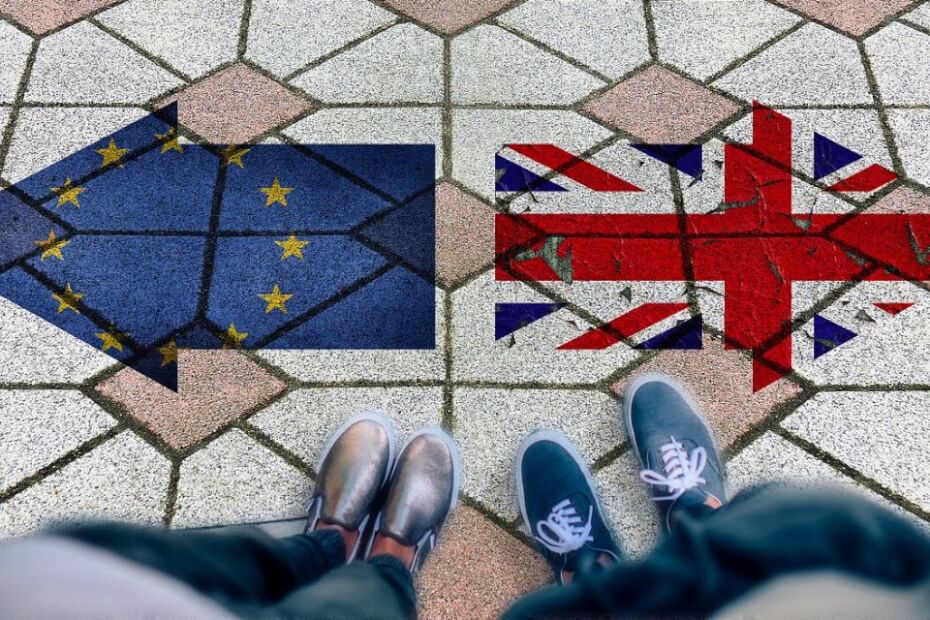
A United Kingdom (UK) tourism industry leader blamed the country’s reduced visitor numbers on post-Brexit visa rules imposed on European Union (EU) nationals.
After Brexit, UK-bound EU citizens were not allowed to use national identity (ID) cards and were required to have passports.
Bernard Donoghue, director of the Association of Leading Visitor Attractions (ALVA), said banning EU citizens from visiting the UK on their national ID cards was “irrational.”
“We thought that was a disastrous act of economic self-harm,” he told The Independent.
ALVA’s members include the UK’s leading museums, galleries, historic sites, and leisure attractions, totaling over 2,200 locations.
The group advocates for its members with the government, media, and businesses, seeking support for the sector.
Requiring EU citizens to have passports to travel to the UK was both a huge ask for travelers and a risk for the government.
EU citizens enjoy free movement within the Schengen Common Travel Zone. When traveling to other EU countries, they only need to present their national ID cards.
As a result, more than 200 million potential UK visitors from Europe only have ID cards.
According to the government, the country would lose about 890,000 visits from EU citizens yearly. This translates to a financial loss of about £590 million annually.
UK schools “suffering” from post-Brexit visa rules
The ALVA director disclosed that English-language schools in the UK “have also been suffering.”
“They’ve been missing out on both customers and money for the last three years,” Donaghue said.
Ireland, Malta, and the United States (US) were the only countries benefiting from the ban on EU ID cards for prospective language students.
“It really has affected the visitor economy here in the UK,” Donoghue expressed.
According to the Institute of Tourist Guiding, school group bookings in the UK decreased by 99 percent after Brexit compared to 2019.
Before Brexit, around 10,000 French school trips to the UK were arranged annually, contributing £100 million to the economy.
However, the UK’s post-Brexit visa rules for EU students have made it difficult for teachers to organize student trips.
Aside from many French students not having passports, non-EU enrollees must have visitor visas, which is an added cost and nuisance.
By the end of December 2023, the UK government decided to ease post-Brexit visa rules for French school educational trips.
EU, Iceland, Liechtenstein, Norway, and Switzerland students can now travel to the UK on their ID cards.
Non-EU students enrolled in French schools must still have passports but are no longer required to obtain a visit visa.
A government spokesperson said it would “consider negotiating with other countries in the context of wider discussions on migration issues.”
Germany seeks a similar arrangement, waiving passport requirements for British students visiting Germany on educational trips or school exchanges.
It is part of a larger initiative to encourage young British students to study the German language.
It also aims to make traveling to Germany more accessible and appealing to UK students.
Reduced visitor numbers partly due to the ban on ID cards
Donoghue says the UK’s top tourist attractions are still below pre-pandemic visitor numbers.
“We’re down about 11 percent compared to 2019,” he said.
The ALVA director said the Chinese is the most significant demographic that has yet to recover. China lifted its COVID-19 travel restrictions later than most countries.
Donoghue is hopeful that Chinese visitor numbers will return to pre-pandemic numbers by the end of 2025.
“They’ve been prioritizing traveling within China and within East Asia first but are starting to come back to the UK,” he said.
VisitBritain forecasts 39.5 million UK visitors by the end of 2024. However, it expects visitor volume to fall only three percent short of pre-pandemic numbers.
Apart from Chinese visitors, the national tourism agency expects American and Gulf bloc travelers to contribute to the rise in numbers.
VisitBritain predicts a complete recovery of inbound tourism to 2019 levels in both visits and spending by early 2025.
Still, while the recovery in UK visitor numbers compared to 2019 was similar to that of other Western European countries, the agency expects a decline in market share by 2028.
UK visitor numbers are projected to increase by only 19 percent from pre-pandemic levels by 2028, compared to 26 percent in Western Europe.
Patricia Yates, CEO of VisitBritain, attributes this decline to a decrease in intra-European travel.
The decline in the number of EU visitors is partly due to the requirement to have passports instead of just ID cards to visit the UK.
Abolishing tax-free shopping made UK visitors leave early
Donoghue, who is also London’s ambassador for cultural tourism appointed by the mayor, said abolishing tax-free shopping in 2021 was another wrong move.
He said scrapping VAT-free sales for tourists made the UK “less competitive and less attractive as a destination.”
The ALVA director shared that, as a result, overseas visitors spend less time in the UK and shop in other European cities such as Paris, Milan, or Rome.
In 2020, the UK’s Office for Budget Responsibility projected that the government would save approximately £400 million annually by discontinuing the VAT refund scheme.
This change was expected to decrease the number of tourists by an estimated 20,000 to 30,000 annually.

